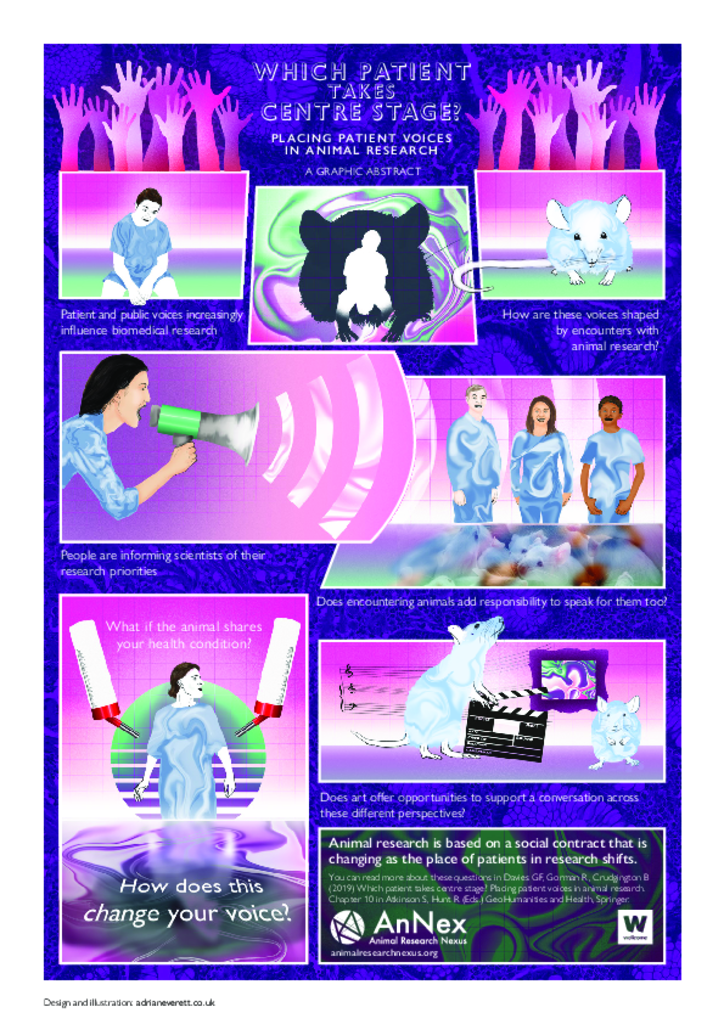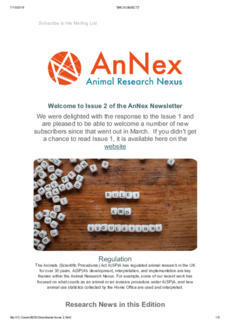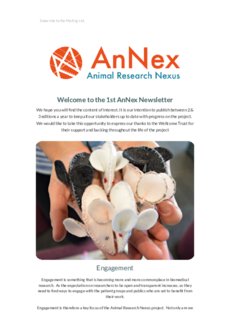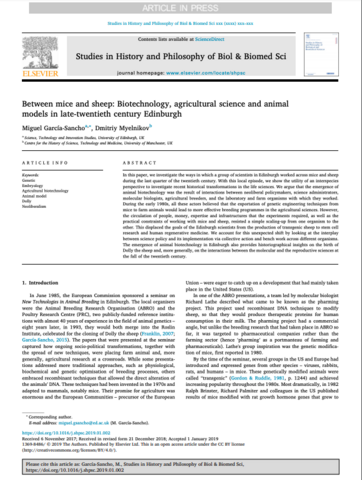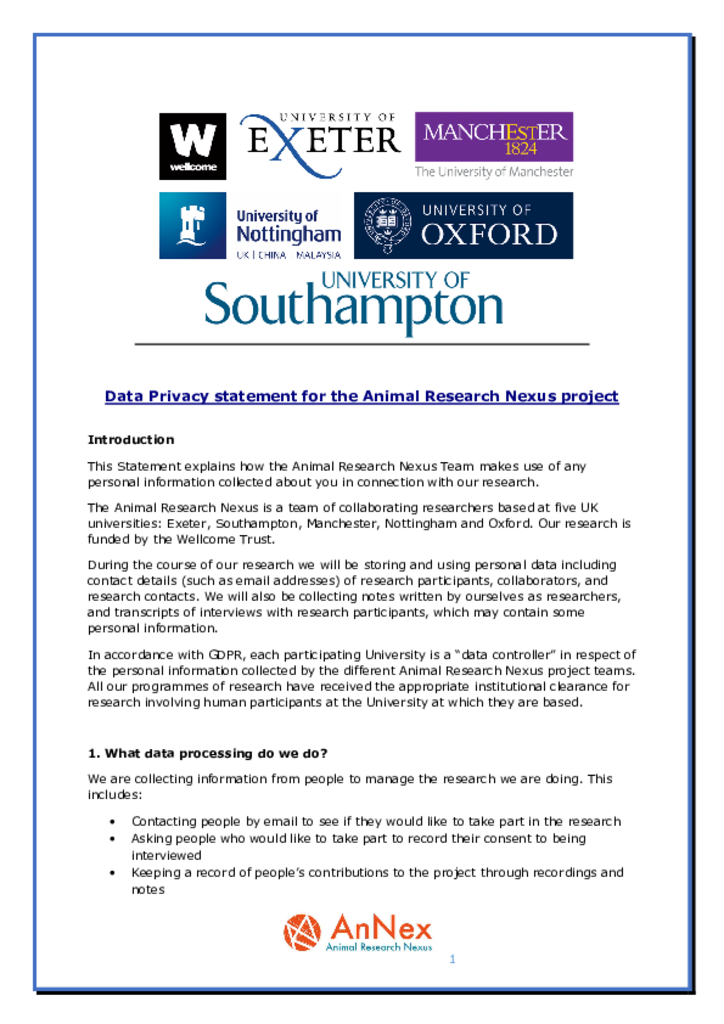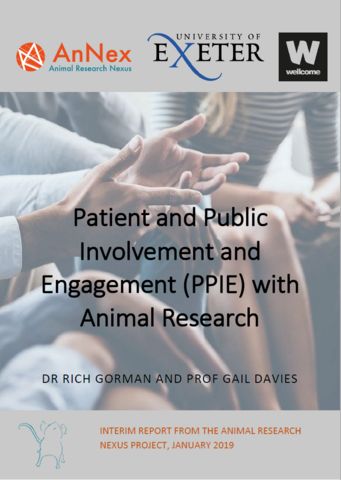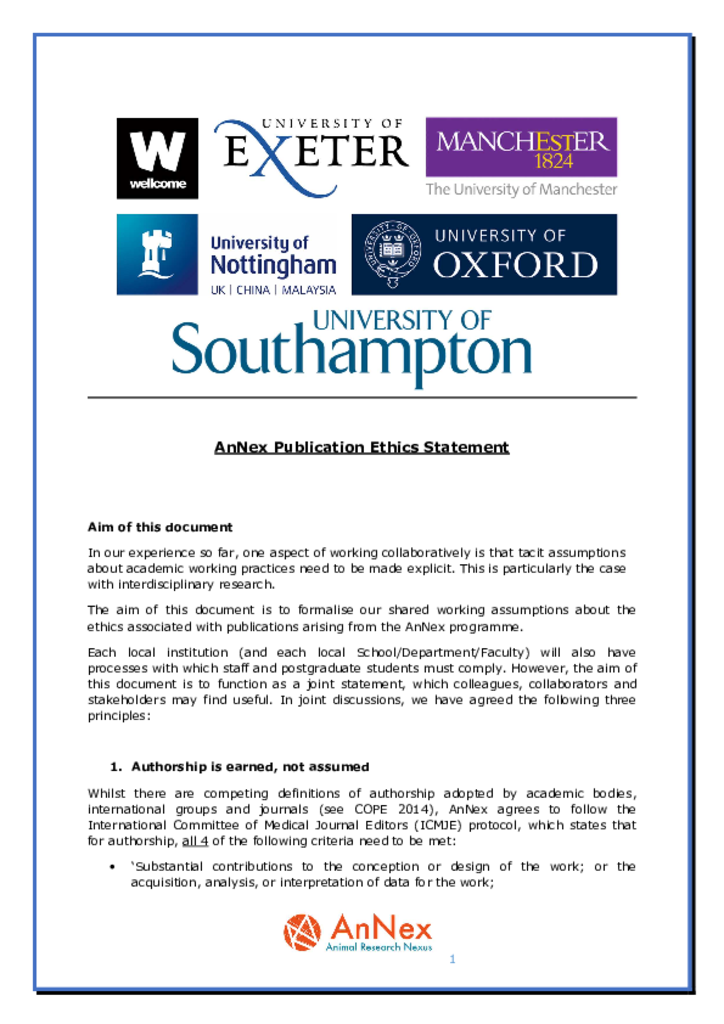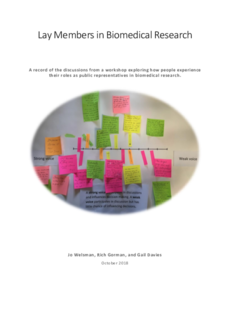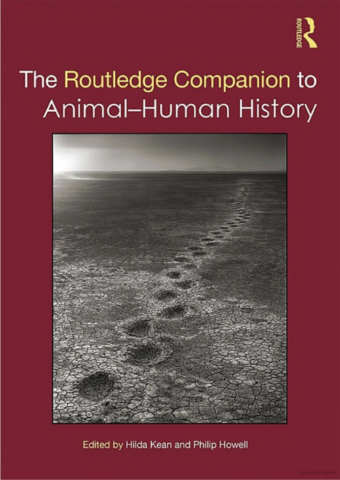Publications
Part of the Animal Research Nexus programme involves exploring the changing relationships between people affected by different health conditions and animal research. Our new chapter explores how ‘patient voices’ are represented around animal research. And we’ve made it into a graphic abstract...
Issue 2, Summer 2019
Issue 1, Spring 2019
Here, we investigate the ways in which a group of scientists in Edinburgh worked across mice and sheep during the last quarter of the twentieth century. With this local episode, we show the utility of an interspecies perspective to investigate recent historical transformations in the life sciences.
This Statement explains how the Animal Research Nexus Team makes use of any personal information collected about you in connection with our research.
This report discusses the different expectations people have of Patient and Public involvement and Engagement with animal research. We review the opportunities and challenges across perspectives. We also identify preliminary recommendations for enabling more meaningful involvement.
In our experience so far, one aspect of working collaboratively is that tacit assumptions about academic working practices need to be made explicit. This report aims to highlight our working assumptions about the topic of publication ethics.
This report provides a record of the discussions at a workshop which brought together lay members from across the biomedical research sector to discuss the opportunities and challenges of shaping biomedical research.
The Routledge Companion to Animal-Human History provides an up-to-date guide for the historian working within the growing field of animal-human history. This book chapter by Rob Kirk suggests that to understand animal–human history we would do well to start with the role of animals in science.
This paper draws on ethnographic work with laboratory animal technologists to offer insights into the skills required to study human–animal relations and the role played by storytelling in negotiating the contested moral economies of animal research.
